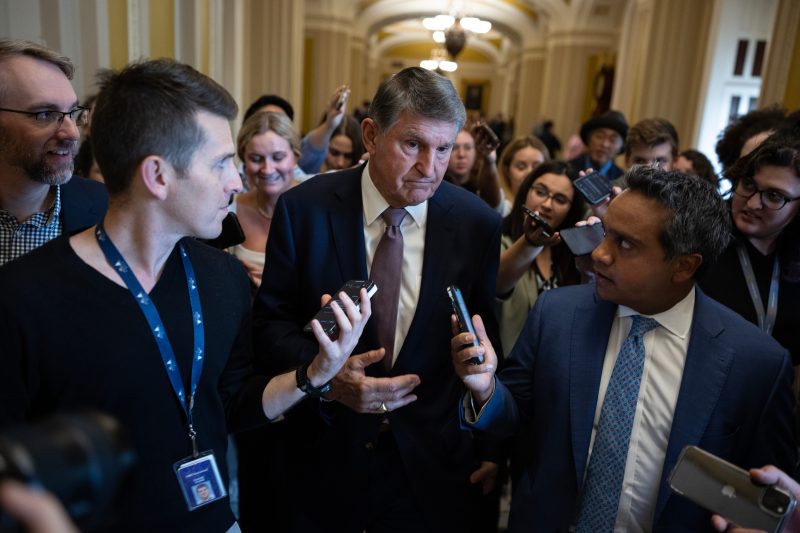
Manchin Contemplates Next Move Following Biden’s Presidential Campaign Departure
Senator Joe Manchin, a key figure in the Democratic Party, is now faced with a decision that could have significant implications for both his political career and the upcoming presidential election. With former Vice President Joe Biden’s recent announcement of his withdrawal from the presidential race, Manchin finds himself at a crossroads, weighing his options and considering his next steps.
Manchin, a moderate Democrat from West Virginia, is known for his pragmatic approach to governance and bipartisan collaboration. Throughout his tenure in the Senate, he has navigated the often turbulent waters of American politics with a steady hand and a commitment to finding common ground with colleagues across the aisle. As one of the few remaining conservative-leaning Democrats in Congress, Manchin occupies a unique position that gives him considerable influence and visibility within the party.
In the wake of Biden’s departure from the race, Manchin now faces the challenge of determining how best to leverage his position and support a candidate who aligns with his values and policy priorities. With the Democratic primary field narrowing and the battle for the nomination heating up, Manchin’s endorsement could prove to be a key factor in shaping the outcome of the race. As a respected voice within the party, his decision carries weight and could sway the opinions of undecided voters and undecided delegates.
One option that Manchin may be considering is throwing his support behind a candidate who he believes has the best chance of defeating President Trump in the general election. With the stakes high and the political landscape increasingly polarized, many Democrats are looking for a candidate who can appeal to a broad coalition of voters and unite the party behind a common vision. Manchin’s endorsement could provide a crucial boost to such a candidate and help to solidify their standing in the eyes of the electorate.
Alternatively, Manchin may choose to remain neutral in the race, opting to stay out of the fray and focus on his duties in the Senate. As a centrist lawmaker with a track record of working across party lines, Manchin may see value in maintaining his independence and avoiding entanglement in the sometimes contentious world of presidential politics. By staying on the sidelines, Manchin could position himself as a voice of reason and a unifying figure within the party, offering a potential bridge between competing factions and ideological camps.
Whatever path he ultimately chooses, Manchin’s decision is sure to be closely watched and analyzed by political observers and party insiders alike. As a key player in the Democratic Party, his endorsement could shape the course of the presidential race and help to define the party’s direction in the years to come. With so much at stake, Manchin finds himself at a pivotal moment in his political career, one that will test his leadership skills and strategic acumen in the high-stakes arena of American politics.
